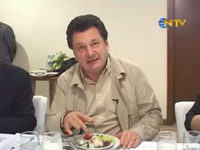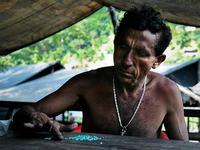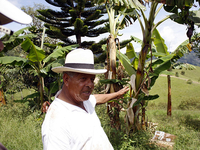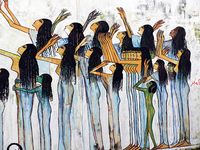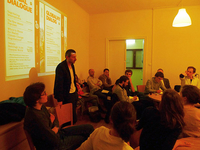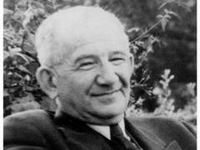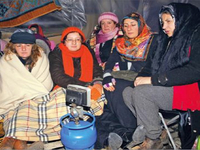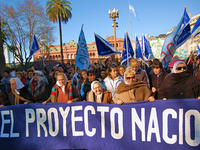GD 2.4 - May 2012

Global Dialogue is available in multiple languages!
Select the language to download the issue.
Editors:
Michael Burawoy.
Associate Editor:
Margaret Abraham, Tina Uys, Raquel Sosa, Jennifer Platt, Robert Van Krieken.
Managing Editors:
Lola Busuttil, August Bagà.
Media Consultant:
Annie Lin, José Reguera.
Consulting Editors:
Izabela Barlinska, Louis Chauvel, Dilek Cindoğlu, Tom Dwyer, Jan Fritz, Sari Hanafi , Jaime Jiménez, Habibul Khondker, Simon Mapadimeng, Ishwar Modi, Nikita Pokrovsky, Emma Porio, Yoshimichi Sato, Vineeta Sinha, Benjamin Tejerina, Chin-Chun Yi, Elena Zdravomyslova.
REGIONAL EDITORS
Arab World: Sari Hanafi , Mounir Saidani.
Brazil: Gustavo Taniguti, Juliana Tonche, Pedro Mancini, Fabio Silva Tsunoda, Célia da Graça Arribas, Andreza Galli, Renata Barreto Preturlan.
Colombia: María José Álvarez Rivadulla, Sebastián Villamizar Santamaría, Andrés Castro Araújo.
India: Ishwar Modi, Rajiv Gupta, Rashmi Jain, Uday Singh.
Iran: Reyhaneh Javadi, Shahrad Shahvand, Fatemeh Moghaddasi, Saghar Bozorgi, Nastaran Mahmoudzadeh, Najmeh Taheri, Tara Asgari Laleh, Milad Rostami.
Japan: Kazuhisa Nishihara, Mari Shiba, Kousuke Himeno, Tomohiro Takami, Yutaka Iwadate, Kazuhiro Ikeda, Yu Fukuda, Michiko Sambe, Takako Sato, Shohei Ogawa, Tomoyuki Ide, Yuko Hotta, Yusuke Kosaka.
Poland: Mikołaj Mierzejewski, Karolina Mikołajewska, Jakub Rozenbaum, Michał Chełmiński, Emilia Hudzińska, Julia Legat, Adam Muller, Wojciech Perchuć, Anna Piekutowska, Anna Rzeźnik, Konrad Siemaszko, Zofi a Włodarczyk.
Russia: Elena Zdravomyslova, Anna Kadnikova, Elena Nikiforova, Asja Voronkova.
Taiwan: Jing-Mao Ho.
Turkey: Aytül Kasapoğlu, Nilay Çabuk Kaya, Günnur Ertong, Yonca Odabaş, Mustafa Aykut Attar.
GD 2.4 - May 2012
Editorial
Global Dialogue has been running for two years. We’ve expanded from 8 to 30 pages, from 5 to 14 languages, from a standard template to a special design, from a newsletter to a magazine. It appears electronically — although wherever I go my bags are weighed down with hard copies, printed in the relevant languages. It offers a sociological lens on world events as well as a repository of happenings in the ISA, conferences, sociological debates, special columns, updates on national sociologies and so forth. Most important is the dialogue it creates within and among the teams of translators. For example, in this issue the young and enthusiastic members of the Public Sociology Laboratory in Warsaw report on the conference they organized to launch the Polish version of Global Dialogue – a conference extending Global Dialogue’s debate on sociology’s global and universal character. One of the results, therefore, is a network of interconnected teams of young sociologists – cultivating diverse visions of world sociology.
A similar principle governs the global course: Public Sociology, Live! Here an array of brilliant sociologists, deeply embedded in the countries where they live and research, talk to curious Berkeley undergraduates about their experiences of engagement. Using Skype, these over-committed public sociologists don’t have to leave their studies. The conversations are recorded and posted on the ISA website where they can be watched by anyone with access to the Internet at http://www.isa-sociology.org/public-sociology-live/. In particular, it is watched by groups of students and their teachers in Barcelona, Tehran, Johannesburg, Sao Paulo, Kyiv, and Oslo who then post summaries of their discussions on facebook, which in turn generates further discussion and debate. We, thereby, create hubs, laboratories, and institutes that learn about themselves through connecting to others, nurturing a community of global sociologists, tied together by their diversity.
Social media can intensify and enrich face-to-face interaction, even as it brings that interaction to global audiences. Thus, the video series Journeys through Sociology, described by Laleh Behbehanian in this issue, asks the far-flung members of the ISA Executive Committee what brought them to sociology, and what challenges they faced on the way. Most ISA members would never have a chance to hear or see their leaders, but now they are available at a click of a mouse. Here, then, are examples of what, in principle, can be done from anywhere in the world, models that others can copy, modify, and improve. The Internet can spell the degradation of education but it can also enhance education, it can dilute communication but it can also enrich it. So long as we control the Internet, we can decide how to use it.
Michael Burawoy, editor of Global Dialogue
Global Dialogue can be found in multiple languages.
Submissions should be sent to globaldialogue@isa-sociology.org.



